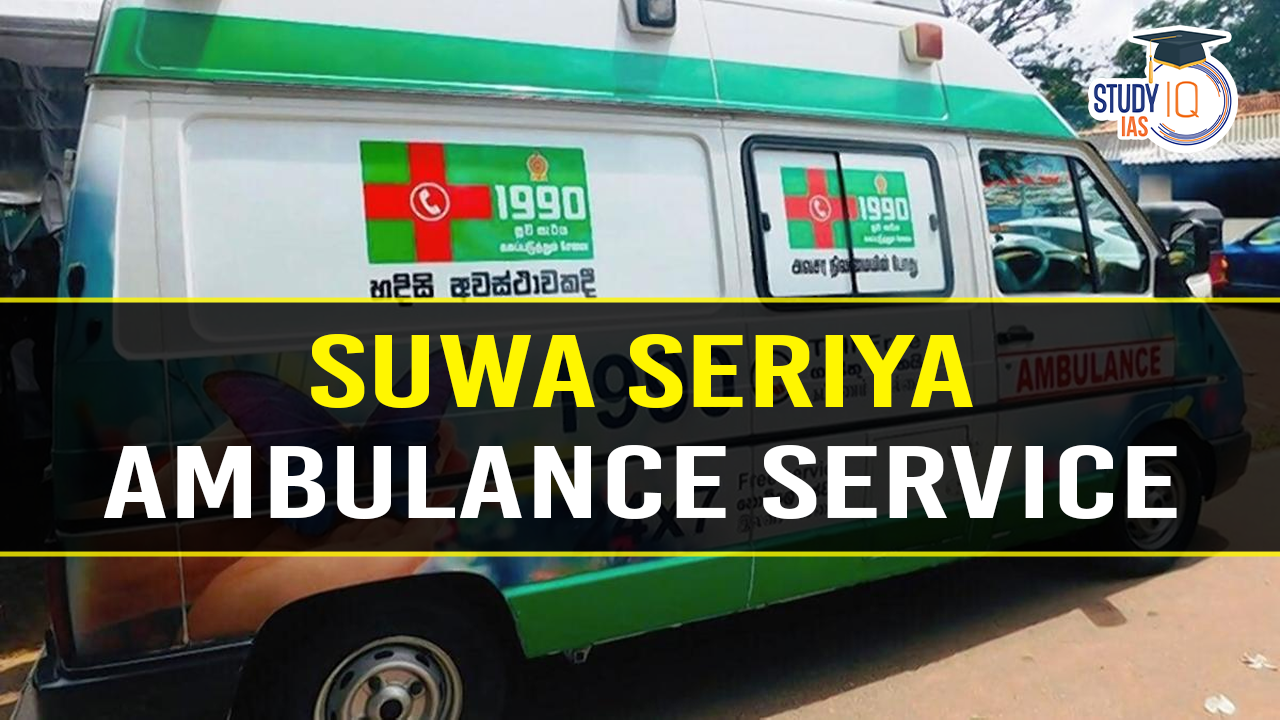Table of Contents
Context: An India-gifted free ambulance service, known as ‘Suwaseriya 1990’, has been providing vital pre-hospital emergency care across Sri Lanka for the past eight years. However, it now faces critical challenges, as highlighted by a recent social media post from a public health professional.
Incident Highlighting Service Issues
- Yasuni Manikkage, a doctor at a government hospital in Colombo, shared on social media about a 51-year-old man’s death due to a delay in ambulance response.
- She questioned the Lankan government’s prioritisation of funding for the Suwaseriya service.
Suwaseriya Ambulance Service Overview
- Launched in July 2016 with a $7.56 million grant from India, the service expanded in two years with an additional $15.09 million from India.
- The ambulance network has responded to about 82 lakh calls and 19 lakh medical emergencies, including in remote areas.
- Initially set up with Indian assistance, Sri Lanka has since taken over its operation, with over 700 medical technicians trained in India and a local training program developed post-pandemic at the University of Kelaniya.
Challenges and Current Status of Suwaseriya 1990
- The service is struggling after Sri Lanka’s financial meltdown in 2022, which led to hyperinflation and increased living costs.
- Many medical professionals and technicians have left the country for better opportunities abroad, impacting the public health system and the ambulance service.
- The service has lost 400 staff members out of nearly 1,500 since 2022, and current salaries of LKR 50,000 (about ₹13,800) are insufficient to make ends meet in Sri Lanka.
- Over 50 out of the 322 ambulance vehicles are offline due to staff shortages and repair delays, exacerbated by the migration of mechanics.
Government Response
- Health Minister Ramesh Pathirana stated that the government cannot increase salaries for just one section of public service and cannot afford across-the-board salary hikes currently.
- He noted that budgetary allocations have been made for the ambulance service, and the health sector is improving as the country stabilises.
Funding and Sustainability
- Despite budget allocations, the service sought adoption last year due to a funding crunch.
- It has raised LKR 750 million through private sector donations and corporate assistance but sustaining the service requires more than individual philanthropy.
- Delays in repairs have increased due to the migration of mechanics, affecting the operational capacity of the ambulance fleet.


 UDAN Scheme, Objectives, Funding and Ach...
UDAN Scheme, Objectives, Funding and Ach...
 Indus Water Treaty 1960 Suspended by Ind...
Indus Water Treaty 1960 Suspended by Ind...
 5 Years of SVAMITVA Scheme and Its Benef...
5 Years of SVAMITVA Scheme and Its Benef...





















